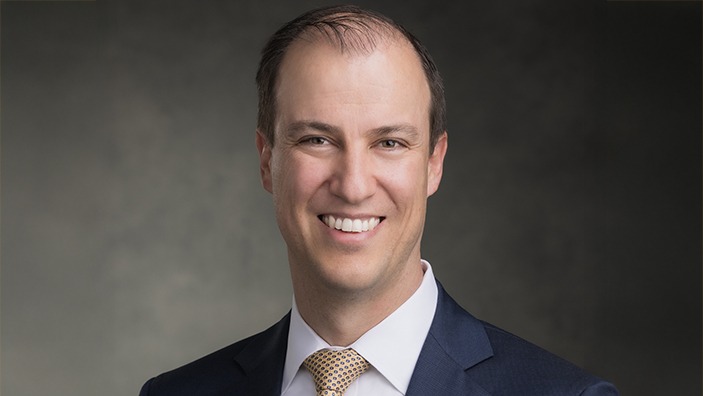The study published 21 May in NEJM Catalyst, part of the New England Journal of Medicine group of journals, focuses on abiraterone acetate, a treatment for metastatic prostate cancer, as the proof-of-concept drug for the health care utility (HCU) model of CivicaScript, a not-for-profit drug manufacturer in the US.
This type of cancer is the second-leading cause of cancer deaths in US men, so the study’s finding that the drug can be produced reliably at scale holds deep implications for drug affordability and accessibility.
“CivicaScript’s success proves that prioritising patient access over investor profit in the generic pharmaceutical industry is not only possible, but also could be highly productive and cost efficient,” say the authors, Carter Dredge, President, Mindshare Institute and Executive Director, Intermountain Leadership Institute, and Stefan Scholtes, Dennis Gillings Professor of Health Management at the Business School.


Addressing deficiencies in the drug patent system
The study focused on the period between September and December 2023, and found cost savings for patients of 64% and savings for payers of 92%. The US leads the world in prescription drug spending, reaching about $723 billion in 2023 (surpassing the gross domestic product of Argentina), the study says. Specialty medications — “those providing ‘high-cost, high-touch’ therapies for complex conditions” – account for 50% of total drug expenditures even though they account for only 2% of total prescriptions.
The study acknowledges the crucial role that patent protection plays in the marketplace development of important drugs, in order to pay for the risk-taking research and development of pharmaceutical and biotech companies, but says the market system now often fails to deliver on patent laws’ underlying assumptions.
“CivicaScript was launched to counter this market failure. The fact that many generic drugs remain prohibitively expensive for many patients defeats the purpose of the patent system, and the US debate over the sharp rise in insulin prices highlights this problem,” says Carter Dredge. “The CivicaScript model aims to make generic drugs accessible and affordable for all, and we believe we can replicate this model in more healthcare industries.”
The fact that many generic drugs remain prohibitively expensive for many patients defeats the purpose of the patent system, and the US debate over the sharp rise in insulin prices highlights this problem.
Study began as doctoral thesis by co-author Carter Dredge at Cambridge Judge
Carter Dredge is a top executive at Intermountain Health, and former lead futurist and chief strategy officer at SSM Health. He is also a Fellow at Cambridge Judge Business School, where he previously earned a Business Doctorate (BusD 2020). Both Intermountain Health and SSM Health were a part of Civica’s founding health systems. The novel underlying business model for Civica and CivicaScript was the subject of Carter’s thesis for his Business Doctorate degree at Cambridge Judge, and he continues to collaborate with leaders across the globe to solve market failures that are hurting people.
Launched in 2020, Utah-based CivicaScript membership now covers over 100 million people, about 30% of the US population, through more than 20 institutional partners including Blue Cross Blue Shield in more than a dozen states including California, Michigan, Rhode Island and Kansas.
CivicaScript is based on the health care utility (HCU) model, a self-sustaining nonstock corporation with a social mission, formed by health care institutions to provide essential products at the lowest sustainable cost through a transparent and scalable business model. The CivicaScript model complements the direct-to-consumer model of the Cost Plus Drug Company, launched by well-known US businessman Mark Cuban in 2022.
“In contrast to the direct-to-consumer model, which bypasses the traditional insurance market, CivicaScript takes an inside-out approach,” says study co-author Stefan Scholtes. “The idea behind the CivicaScript model is collaboration with large payers to restructure the drug production and payment systems to address systemic problems, including high generic drug prices, through transparent market correctors.”
The idea behind the CivicaScript model is collaboration with large payers to restructure the drug production and payment systems to address systemic problems, including high generic drug prices, through transparent market correctors.
Affordable drug pricing model challenges traditional supply chain practices
The branded version of abiraterone acetate, Zytiga, lost patent protection in 2018, but the drug still costs thousands of dollars per month for each patient, the study says. CivicaScript set the wholesale price of a bottle of 120 250-mg tablets, typically a month’s supply, at $160. Through a quick response (QR) code on the bottle’s label, patients can see that the maximum retail price they could expect to pay was $171, or slightly above the wholesale price to cover pharmacy dispensing fees.
The study then collected and analysed pharmacy claims data from CivicaScript members, and compared payments per patient-month between CivicaScript and other manufacturers for the period September to December 2023 to arrive at the cost saving percentages.
“CivicaScript’s proof of concept has shown that there are substantial opportunities for reducing generic drug costs for both patients and payers, despite resistance from entrenched players in the drug supply chain,” the study concludes. “Its success with abiraterone acetate is evidence that reframing business models around sustainability and affordability, rather than profit maximisation, can generate meaningful cost savings.”
Drug pricing report reveals steep markups by pharmacy middlemen
The study says that CivicaScript faces obstacles from the current drug supply chain in getting its product to patients, citing a Federal Trade Commission staff July 2024 interim report on drug pricing control by pharmacy benefit managers (PBMs), or middlemen.
A subsequent FTC staff interim report in January 2025 found that “the ‘Big 3 PBMs’—Caremark Rx, LLC (CVS), Express Scripts, Inc. (ESI), and OptumRx, Inc. (OptumRx)—”marked up numerous specialty generic drugs dispensed at their affiliated pharmacies by thousands of percent, and many others by hundreds of per cent.”
Featured research
Dredge, C., and Scholtes, S. (2025) “Changing the script on drug pricing: A new type of supplier creates savings for patients and plans” NEJM Catalyst
Related content
The Federal Trade Commission published a press release on an interim staff report on the prescription drug middleman industry in January 2025.




